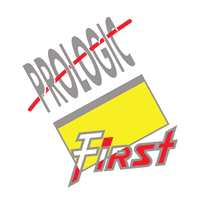Description

Purbis

MQSYS Hotel
Comprehensive Overview: Purbis vs MQSYS Hotel
I could not find specific information about Purbis or MQSYS Hotel as these names might not refer to widely recognized companies, products, or services. It's possible that they are niche solutions, relatively new entrants in the market, or localized services that do not have widespread information available online. However, I can provide a general framework on how to evaluate or overview hotel management and restaurant ordering systems, which could be what these terms refer to.
a) Primary Functions and Target Markets:
-
Hotel Management Systems (such as MQSYS Hotel):
- Primary Functions:
- Reservation management
- Billing and invoicing
- Front desk operations
- Housekeeping management
- Reporting and analytics
- Customer relationship management (CRM)
- Channel management (integration with travel agencies, booking platforms)
- Target Markets:
- Small to large hotel chains
- Boutique hotels
- Resorts
- Bed and breakfasts
- Primary Functions:
-
Food Delivery and Ordering Systems (like Purbis if it refers to such a platform):
- Primary Functions:
- Online ordering and delivery management
- Menu management
- Payment processing
- Order tracking for customers and restaurants
- Customer feedback and review systems
- Integration with third-party delivery services
- Target Markets:
- Restaurants
- Food trucks
- Delivery services
- Cloud kitchens
- Primary Functions:
b) Market Share and User Base:
-
Hotel Management Systems:
- The market comprises well-established players like Oracle Hospitality, RoomKeyPMS, and Cloudbeds. These systems can capture substantial market shares depending on their regional presence and specific capabilities.
- New entrants may have small footprints initially and may need innovative features or pricing strategies to capture market share.
-
Food Delivery and Ordering Systems:
- Dominated by giants like UberEats, DoorDash, and Zomato. Smaller systems may focus on hyper-local markets or offer niche features to compete effectively.
- Market share data is often proprietary and may involve confidential metrics, but significant players are often reflected in industry analyses and reports.
c) Key Differentiating Factors:
-
Customization and Flexibility:
- The ability of a system to tailor features to specific business needs.
- Purbis might offer unique features catering to niche markets, which could differentiate it from more generic systems.
-
Integration Capabilities:
- Seamless integration with existing systems (e.g., POS, payment gateways, third-party APIs) is crucial.
- MQSYS Hotel might provide distinct integrations or partnership networks that benefit certain business types.
-
User Experience and Interface:
- Intuitive design and user-friendliness can be significant selling points.
- Systems that require minimal training or are known for excellent customer service experience might stand out.
-
Pricing Model:
- Competitive and transparent pricing can be a decisive differentiator.
- Businesses might offer subscription-based pricing, a freemium model, or custom quotes based on tailored solutions.
-
Data Analytics and Reporting:
- Advanced data analytics might help businesses gain insights, reduce costs, or enhance customer satisfaction.
- Some systems might offer more potent analytic tools, which can be a significant advantage.
In the absence of specific information about Purbis and MQSYS Hotel, this framework can help understand what to consider when analyzing or comparing hotel management and ordering systems within the hospitality sector. For detailed and personalized insights, reaching out directly to these companies or accessing their websites, brochures, or customer testimonials if available, would be beneficial.
Contact Info

Year founded :
Not Available
+91 96293 70003
Not Available
India
Not Available

Year founded :
Not Available
Not Available
Not Available
Not Available
Not Available
Feature Similarity Breakdown: Purbis, MQSYS Hotel
As of my last update, I don't have specific, detailed comparisons for Purbis and MQSYS Hotel because these products might not be well-documented public software solutions, or my training data doesn't cover them extensively. However, I can provide a general approach to how you might compare hotel management solutions based on common features in such software:
a) Core Features in Common:
- Reservation Management: Both systems likely offer reservation features that deal with bookings, cancellations, and modifications.
- Check-In/Check-Out Processing: Basic functionalities for handling guest arrivals and departures.
- Guest Management: Facilities to manage guest profiles, histories, and preferences.
- Billing and Invoicing: Systems to generate bills, send invoices, and handle payments.
- Housekeeping Management: Features to schedule and track housekeeping activities.
- Reports and Analytics: Tools for generating performance and operational reports.
- Inventory Management: Management of room inventory and availability.
- Channel Management: Integrations with booking platforms and travel agencies.
b) User Interface Comparisons:
- Usability: User interfaces should be intuitive and easy to navigate for hotel staff. You might want to compare the layout design, readability, and speed of accessing different modules.
- Aesthetic Design: Look for how visually appealing the interfaces are. This includes color schemes, font choices, and graphic elements.
- Customization: The ability to customize the interface according to user preference can be a significant point of comparison.
- Mobile Accessibility: Evaluate if there are responsive designs or dedicated mobile apps for managing operations on-the-go.
c) Unique Features:
- Purbis: If applicable, it might offer unique integrations with other business tools, a specialized focus on mobile booking, or innovations in guest experience management.
- MQSYS Hotel: This software might provide advanced data analytics capabilities, automated customer interaction tools like chatbots, or superior multi-property management features.
For a precise breakdown, you should access product demos, case studies, or user reviews of these solutions. This can provide deeper insights into their real-world applications and differentiation.
Features

Not Available

Not Available
Best Fit Use Cases: Purbis, MQSYS Hotel
Purbis: Best Fit Use Cases
a) Types of Businesses or Projects for Purbis:
Purbis is a comprehensive online ordering and delivery management system primarily suited for the food and beverage industry. Here are the scenarios where Purbis would be the best choice:
-
Restaurants and Cafes: Establishments looking to streamline their online ordering processes, manage deliveries efficiently, and enhance customer engagement would benefit from Purbis. It offers features like branded mobile apps, real-time tracking, and an intuitive interface for both customers and staff.
-
Food Chains and Franchises: For businesses managing multiple locations, Purbis provides centralized control over operations, menu management, and analytics, making it ideal for scaling and maintaining consistency across outlets.
-
Cloud Kitchens: As these businesses operate purely on delivery and online orders, Purbis supports their model by offering efficient order management, integration with delivery partners, and data-driven insights for decision-making.
-
Grocery Stores and Supermarkets: Purbis can also be adapted for online grocery stores looking to provide a seamless online shopping experience with options for home delivery or curbside pickup.
MQSYS Hotel: Preferred Use Cases
b) Scenarios for Preferring MQSYS Hotel:
MQSYS Hotel is a hotel management software designed to streamline operations in the hospitality industry. It is best suited for:
-
Independent Hotels and Motels: These establishments can deploy MQSYS Hotel to manage reservation systems, guest check-in/check-out processes, housekeeping, and billing efficiently without the need for extensive IT infrastructure.
-
Resorts and Boutique Hotels: MQSYS Hotel offers tools for managing a wide array of services that resorts and boutique hotels offer, from spa appointments and activity scheduling to personalized guest services.
-
Hotel Chains and Groups: With its multi-property management capabilities, MQSYS Hotel is beneficial for larger hotel groups needing effective management of different properties under a single umbrella, offering centralized control with flexible property-specific configurations.
-
Bed and Breakfasts and Inns: Smaller operations like B&Bs can use MQSYS Hotel to automate basic administration tasks, freeing up time to focus on guest experience.
Catering to Different Industry Verticals and Company Sizes
d) Industry Vertical and Company Size Considerations:
-
Purbis: Primarily targeting the food and beverage sector, Purbis is adaptable for use by small to medium-sized enterprises (SMEs) as well as larger chains. Its scalability means it can grow with a business, making it equally beneficial for a single-location cafe or a multi-location franchise. The platform's ability to integrate with third-party delivery services also supports businesses that don't have their own dispatch systems.
-
MQSYS Hotel: Geographic location and size are not limitations for deploying MQSYS Hotel. Its modular structure allows it to cater to the smallest bed and breakfasts as well as large hotel groups. The software addresses various operational needs, from front desk management to extensive guest service applications, providing solutions scalable up to large hotel networks with multiple properties.
In summary, Purbis is most effective for businesses focused on food delivery and online ordering, while MQSYS Hotel caters to the hospitality industry, providing comprehensive tools for property management and guest services. Both platforms are designed to cater to a range of company sizes, from small enterprises to large chains or groups, within their respective industry verticals.
Pricing

Pricing Not Available

Pricing Not Available
Metrics History
Metrics History
Comparing undefined across companies
Conclusion & Final Verdict: Purbis vs MQSYS Hotel
To conclude the comparison between Purbis and MQSYS Hotel Management Systems, let's assess which product offers the best overall value, weigh the pros and cons of each, and provide specific recommendations for potential users.
a) Best Overall Value
MQSYS Hotel tends to offer the best overall value for hotel management. This is primarily due to its comprehensive set of features tailored specifically for the hospitality industry, coupled with strong customer support and competitive pricing. MQSYS Hotel provides a robust platform that integrates seamlessly with various hotel operations, promoting efficiency and enhancing the guest experience.
b) Pros and Cons
Purbis:
Pros:
- Versatility: Purbis is highly versatile, catering to a wide range of industries beyond hotels, such as restaurants and delivery services. This makes it ideal for businesses seeking a multi-faceted solution.
- Customization: It offers substantial customization options, allowing businesses to tailor the software to their specific needs.
Cons:
- Industry-Specific Features: While versatile, Purbis may lack some specialized features crucial for hotel management that MQSYS Hotel provides.
- Learning Curve: Due to its versatility and customization options, there may be a steeper learning curve for employees.
MQSYS Hotel:
Pros:
- Specialization: Specifically designed for the hotel industry, providing a comprehensive suite of features that address hotel-specific challenges.
- User-Friendly Interface: Typically offers an intuitive interface, making it easier for staff to use without extensive training.
- Integration: Strong integration capabilities with other hotel systems, such as booking engines and payment gateways.
Cons:
- Limited Versatility: Primarily focused on hotels, it may not be suitable for businesses looking for a broader application across various industries.
- Customization: May offer less flexibility in terms of customization compared to more generic platforms like Purbis.
c) Recommendations
-
For Hotels: If your primary focus is the hospitality industry, and you require a system that offers solutions tailored explicitly for hotel management, MQSYS Hotel is the more suitable choice. Its industry-focused features and ease of use can provide a significant advantage.
-
For Multi-Service Businesses: If your business spans multiple sectors, such as combining a hotel with restaurant or delivery services, Purbis may offer the flexibility you need. However, be prepared to invest time into customization and training to maximize its benefits.
-
Budget Considerations: Evaluate your budget constraints against the features you most need. While MQSYS offers great value for hotel-specific operations, Purbis can be more cost-effective if you need a multi-faceted solution.
Ultimately, the decision should be guided by the specific needs of your business, considering the scale, industry focus, and desired outcomes. Conducting a trial of both systems, if possible, can provide practical insights to inform your choice.
Add to compare
Add similar companies



